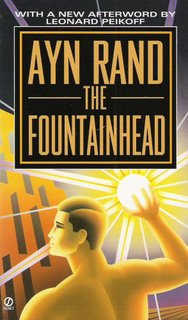Been a while since I penned down my thoughts…
Things like Work got in the way….
It’s amazing really… just a few months ago (is it just a few..? more than six I guess) I had shared my initial corporate experiences in the IT industry….
Now, those experiences seem like a distant dream….
Gone are the days of training, sessions of team building and movies and dumb charades…
Time does change everything…
Many friends have left … for greener pastures maybe,
Work locations are different,
Deadlines eat away most of the time,
Endless meetings occupy the remaining time,
Weekends are spent in sleeping,
Savings are non-existent,
Expenditures are sky-rocketing,
Irritation of nerves is a frequent occurrence,
I don’t seem to be getting along with the life here..
It’s mysterious really… its been quite a few years since I have been living away from home, (although, at the college hostel, during the last few months, we had come to calling that our second home. In retrospect, maybe that was all the emotion speaking). Anyway what I mean is it was never this tough. By the time I left college I felt I was well equipped with all kinds of un/pleasant experiences to help me adjust to any environment. At that time, life in Bangalore with a couple of college friends (with whom I had spent the last 4 years) seemed like a piece of cake.
Now, when I look back, I realize how easy we had it back in college…
Admittedly,
– the food was tasteless most of the time
– there was a perennial problem with electricity
– there was a constant water supply problem (which sort of got resolved in the final year)
– the weather was indescribably extreme ( Temperatures ranging from 5 degrees Centigrade to 40 degrees Centigrade)
– the local populace wasn’t very polite
– there weren’t too many places to hang out in
– ……
However,
- At least there was no daily tension as to ‘what is to be eaten for dinner today’
- At least we didn’t have to think about the electricity/water bill
- No excuse for the weather ; we’d actually gotten used to it by the end
- Same goes for the locals
- At least we had the comfort of a friends’ circle;
We hung out at the weirdest of places :–
-the steps of the college auditorium from where we could see trains running through (
ever seen a train running at night from a not-so-well-lit area?? Looks really amazing—small rectangles of light swiftly passing your vision while you try to decipher the passengers from the train),
-the railings and sidewalks of a newly built cable-stayed bridge (
just found out about the ‘cable-stayed’ part from Google) on the river Yamuna ,
-sitting on the Ghats of the river Yamuna at different parts of the city,
-an ice cream parlour which was the centre of the main marketplace of the city,
-a confectionery store just a few minutes away (
where six of us had once managed to build up a bill of 500 bucks for breakfast; the salesperson there must have thought we were a bunch of students who did not get to eat in their hostels),
-a newly made café which was built on the lines of Barista ,
-a Photostat shop across the gate of college which also sold ice creams and patties (the shop owner had gotten so friendly with us by the end that he used to join us in our stupid games like ‘Movie name Antakshari’ ,
-a Chaat shop adjoining to the Photostat shop which just about sold the best Chaat in that area for the lowest prices imaginable,
-a localite friend’s place (
a few of us had made it our 3rd home)…..
The hostel was like a heaven by the end of our stay …the courtyard within the walls of the hostel was our very own playground- be it Ludo (at one point of time ---we were all addicted to the game), badminton or some weird game invented by a fellow hostel mate. Single rooms for each girl were an added advantage-you always had one place which you could call your personal den(although in hostel, one gets so used to all the noise, music, screams caused by a wandering lizard/mongoose/grasshopper/cockroach/unknown insect,and laughter, that one very rarely needs alone-time). By the time I had reached final year, we all had finally learnt the ropes of that place; we ruled that place – it was our very personal kingdom. Four years of togetherness had taught us how to survive in the most adverse of conditions, laughing together, cribbing together…..
* sigh * nostalgia is catching up with me.. so I better stop right here.
Anyway what I’m trying to say we didn’t how good we had it until we lost it; at least it’s true for me….
Now, we’re all supposedly Professionals; grown up, mature, career conscious, financially wise, with worries about the future, etc. etc.
In my case, I seemed to have lost touch with most of my classmates. The most ironic thing of all is that even though the people who had mattered the most in college are, fortunately, in the same place as me, we hardly ever meet. And people who were not so close back then continue to remain in touch even from places far apart.
Now, looking back at the good old days, I only feel a warm nostalgia, reminiscing about the good times, forgetting the bad. I try not to focus on what could have been and think about what I have today – a few good friends (who’ve outlasted the college-corporate metamorphosis) who are always there by my side and many new ones... some close,some not so much.
To an extent, I have also changed. The erstwhile friends’ circle has shrunk to a select few. I guess different people react differently to change; I took a long time to really understand that and that had caused me to face some unexpected disillusionments when i joined here initially. Now, I no longer take to heart small things which, once upon a time, would have really hurt me. According to me, the secret to adjustment in this new adult life is aloofness. You need to realize that the happy-go-lucky college life is finally over and things are no longer going to be as cozy as before.
If you can master the art of drawing the line between aloofness and intimacy, you’re ready to blossom in this new promising environment. You’re good to go.
I hope, soon I can say that for myself.


